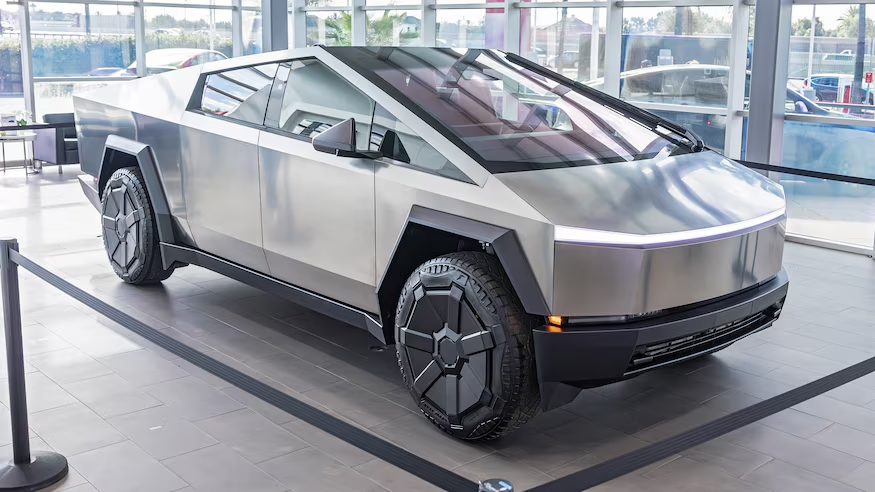A quick look is all it takes to know that vehicle technology has taken huge leaps in recent years. Bluetooth, Apple CarPlay and Android Auto, GM’s OnStar, and dozens of other technologies have made vehicles part of our ‘network’, not just tools for transportation. Connectivity is a driving force for automotive and it centers around what’s known as the Internet of Things, or IoT.
Internet of Things (IoT) often seems like an incomprehensible term. What it simply refers to, according to Dictionary.com, is “a network of everyday devices, appliances, and other objects equipped with computer chips and sensors that can collect and transmit data through the Internet.” Essentially, in automotive it’s the wireless connection between vehicles and their surroundings, as well as the connectivity between a customer and the dealership.
IoT Implications on Auto Retail
No question, there’s a massive shift occurring in auto retail due to connectivity. IoT plays a role in various facets, some of which are obvious, and others less clear.
Autonomous Driving and Vehicle Tech
The clearest example of IoT in auto retail is found in onboard technology. Features such as autonomous driving from carmakers like Tesla and ParkSense technologies from Ford are good examples. There are many other IoT aspects in vehicles today including 4G LTE Wi-Fi hotspots and even infotainment system with satellite radio or navigation. These technologies are all powered by wireless connections. Vehicle updates are completed ‘over the air’ in any cases.
Auto retail can promote this tech and advocate for its use. That’s the direction car sales is going – the in-depth details rather than a broad overview of a vehicle.
Related: How to Create a Competitive Internet Manager/Director Pay Plan
Predictive Maintenance and Repairs
Every sensor and module in cars today are connected to an in-vehicle network. Some of those are also connected to an external network or, at least, could be. Should a sensor detect a failure or predict a potential problem, or if service or maintenance is coming due based on real-time data monitoring, the vehicle can transit that data.
If it sounds nefarious, you don’t have to look far to see that it’s not. Carmakers have been developing apps that service this purpose already. Vehicle health reports are available in-app courtesy of IoT. This will become a hub for data collection in service departments, potentially even allowing dealers to call customers in when problems are detected – long before warning lights come on.
VR in Showrooms
Bentley has test driven a carless showroom more than three years ago with kiosks. However, using virtual reality or augmented reality, dealers could offer similar experiences for car buyers. From exploring vehicle features and selecting interior and exterior colors, it can both shorten the car-buying experience and educate customers establishing a more transparent and trustworthy sales experience.


More Accurate Ad Placement
Perhaps one of the most beneficial aspects for the connectivity through IoT is in advertising. Connected vehicles can be used to isolate and target specific demographics to bring them along in the sales funnel. For example, when a customer’s vehicle shows that it has 10,000 miles, ads could be shown to encourage routine maintenance. When they reach 25,000 miles, targeted ads may display the newest version of the vehicle they drive. At 40,000 miles or five years, specific ads could encourage the owner to get pre-approved on a new car to avoid upcoming repairs.
One detail to keep in mind is that a division between a driver’s personal profile and their vehicle’s profile no longer exists – it’s all interwoven. Ads could be shown on a tablet, smartphone, home computer, or at the office. With this type of connectivity, options are limitless for dealerships to get creative with advertising for sales, service, parts, and education.
There are implications for IoT in auto retail that go beyond such as intertwined blockchain and manufacturing for parts tracking or special order placement. Some aspect affect how a dealer does business day to day, and others do not. It’s a good idea to understand IoT and how it affects the automotive retail industry in order to be most effective in running a dealership.
Related: Your Internet Process is Costing You Sales! But, it’s not your fault…
Did you enjoy this article from Jason Unrau? Read other articles from him here.
Car Biz Today, the official resource of the retail automotive industry.
Be sure to follow us on Facebook and Twitter to stay up to date or catch-up on all of our podcasts on demand.
While you’re here, don’t forget to subscribe to our email newsletter for all the latest auto industry news from CBT News.
This has been a JBF Business Media production.








